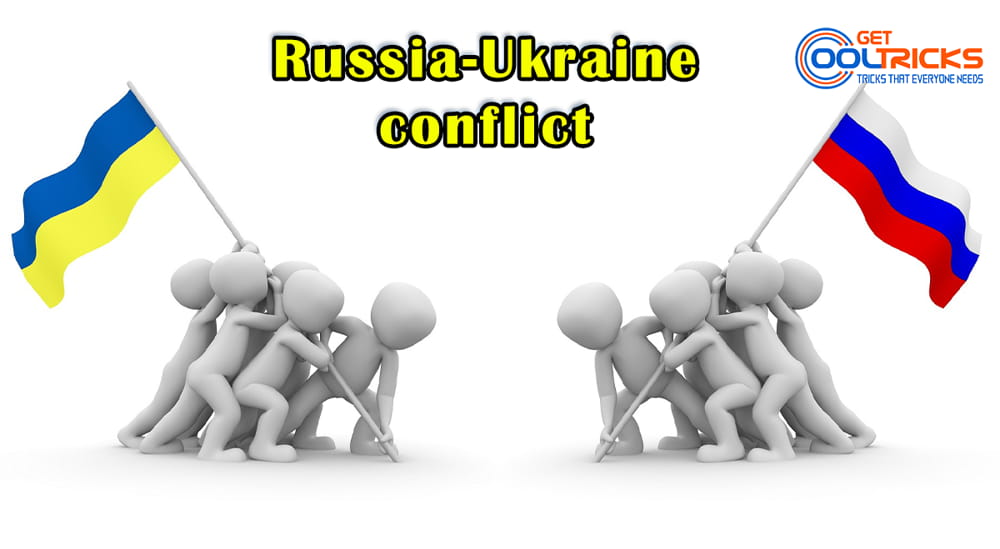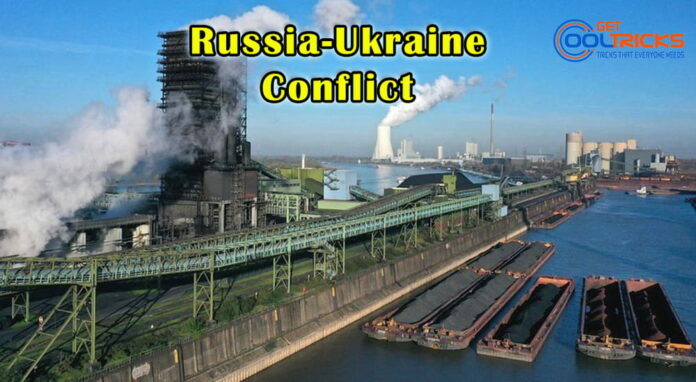Russia-Ukraine conflict:(The Hindu Editorial Short Notes)
Overall Important Points
- Europe depends on natural gas for its energy needs.
- The combined effect of Russia ceasing gas supplies and the worst drought Europe has faced in 500 years means that the continent is facing its worst energy crisis in recent years.
- As the winter approaches, everything from households to industries, and even science projects, such as CERN’s LHC, are threatened by the unfolding energy crisis.
- Governments and policymakers are scrambling to deal with it, but there is a lack of cohesion and coherence in EU countries policies.
- Their search for alternative sources of gas has led them to make deals with countries that have problematic records when it comes to human rights and other issues.
- A positive outcome of the pressure to lower the consumption of gas is that it is forcing a faster adoption of renewable energy than before the crisis. Also, there is more incentive now for countries to invest in energy efficiency.
Article
Germany and Slovenia has the worst energy crisis that Europe has been undergoing in recent years—a combination of the effect of Russia ceasing gas supplies and the worst drought the continent has faced in 500 years.
- Europe is deeply dependent on natural gas for its energy supply.
- Germany, the economic powerhouse at the centre of Europe, is particularly vulnerable.
- Gas from Russia accounts for as much as 40 per cent of its energy mix, essential for its chemical, steel, and carmaking industries, not to mention for domestic uses such as heating and electricity supply.
- The catastrophic heatwaves in summer this year have claimed multiple lives in South Asia and seen unprecedented forest fires in the US, Spain, Portugal, and France, but in the colder countries of north-western Europe, many of whose residents go on holiday to warmer climes in summer, the warm weather came home this year.
- The extreme heat saw rivers drying up, trade slowing down, and energy plants, such as nuclear reactors in France, being forced to shut down as low water availability made cooling them more difficult.
- As industry passed on the resultant higher costs to consumers, there was a steady rise in prices even though this was not immediately visible.
- One of the reasons for this was the drastic experiment that Germany did in the three months of summer—June, July, and August—of issuing €9 (roughly Rs.720) monthly public transport tickets.
- This meant that anybody—German, foreign resident, or tourist—could travel on any train, tram, or bus (excluding high-speed intercity ones) across the country for a fraction of the price they would normally pay.
- To put it in context, the normal price of a train ticket from Frankfurt airport to the city is €5.

Increased tourist footfalls
- The number of people travelling within and around the country and was a bonanza, especially for students and other groups with limited means for extra spending.
- A large increase in spending on other things, increasing footfalls in tourist destinations that would normally have seen much fewer visitors.
- Furthermore, it lowered Germany’s emissions and meant even lower levels of pollution.
- As a means of offsetting the creeping inflation of prices, it was a wildly popular measure, racking up more than 60 million ticket sales in the first two months alone.
- German treasury about €3 billion a month and led to great pressure on the transport system, with carriages being full almost all the time.
- Germany’s enviable public transport system was able to handle the stress, it could not do so perfectly.
- The federal and State governments are now debating on how to extend the scheme, with higher prices and greater investment in the transport system, as a way to make it more affordable to the state while building on this transition to cleaner commutes.
- In the background, however, the fact remains that Germany and other governments in Europe are scrambling to deal with the long-term fallout of the energy crisis and to handle what they see as the coming winter of deep discontent.
- As the cooler months approach, north-western Europe will face the unavoidable challenge of heating homes.
- To offset the loss of Russian gas, they are scrambling to make deals with other countries.
- Norway has now replaced Russia as Europe’s main gas supplier. New deals with Qatar, Saudi Arabia, Azerbaijan, and other liquefied natural gas (LNG) suppliers are being negotiated.
- France derives more than half of its electricity from nuclear plants.
- EU’s gas reserves are nearly 90 per cent full because of these workarounds, they have been expensive solutions and have driven up gas prices around the world.
- LNG is significantly more expensive than the piped gas that flows in from Russia.
- Azerbaijan, emboldened by the new power dynamics, recently upped its assault on Armenia, with whom it has been contesting the Nagorno-Karabakh territories that both countries claim.
- The gas that Europe has bought, and continues to buy, will have severe knock-on effects on inflation worldwide.
- BASF, the German chemical company and the largest in the world, is looking at possibly closing down some plants if costs exceed profitability.
- The massive 10 sq km Ludwigshafen plant, which has run non-stop for the last six decades or so, the outcomes are hard to assess.
- BASF is the world’s largest producer of ibuprofen, the common painkiller that the world buys.
- It also manufactures, among other materials, those essential for carmakers, including chemicals necessary to cut down emissions from diesel vehicles.
- As the winter approaches, everything from personal household expenses to large industry, and even science projects are threatened by the unfolding energy crisis.
- The Large Hadron Collider (LHC)—the world’s most sophisticated and expensive particle collider, which is at the CERN laboratory on the Swiss-French border—may have to figure out what to do.
- CERN needs almost as much electricity as a third of Zurich, and electricity will become far more expensive this winter.
- The LHC is the most energy-intensive piece of equipment housed there. Shutting it down for a long period will significantly degrade the results of long-term experiments, such as the one that found the Higgs boson, the so-called “God particle”, and it involves the cooperation of scientists from across 100 countries.
- The problem for European policymakers is that they do not see much of a choice. The recent leaks in the Nord Stream I and Nord Stream II gas pipelines have underlined the fact that even if an agreement on gas supplies from Russia to Europe were to resume it would not be without hiccups.
- A recent dispute between Ukraine and Russia underlines this: Ukraine accused Russia of not paying it transit fees for gas travelling through the Naftogaz pipeline, and Russia threatened to sanction Ukraine in return. If this escalates and leads to the shutting down of the pipeline, the only gas pipeline continuing to pump Russian gas to Europe will be Turkstream, through the Black Sea.
- Mateusz Morawiecki, the Prime Minister of Poland and leader of the deeply illiberal Law and Justice party, is using his condemnation of Russia to whitewash his own party’s appalling policies domestically while hectoring the rest of Europe.
- Emmanuel Macron, the French President, is deeply concerned about the popularity of Marine Le Pen, another prominent Putin supporter, and by the experience of the gilets jaunes (yellow vest) protests, which were triggered by the rise in energy prices. The less said of the shambolic policies of the UK—which might have formally exited the EU but is inextricably tied to its political economy—the better.
Lack of cohesion in European policies
The lack of cohesion and coherence of European policies is going to add to the problems going forward, possibly engendering the very responses the EU fears:
- protests by a public that feels decisions are being made without consultation or that decisions have not been clearly communicated.
- Europe’s deeply hypocritical response to this war vis-à-vis wars in Africa or elsewhere and its response to Ukrainian refugees versus those from other nations, which has been met with sarcasm and rage.
- The presence across Europe of several large political parties with xenophobic agendas, some even in power now, provides ample fodder for troublemakers to oppose coordinating policies across the EU to deal with the crisis.
- The catastrophic rise in electricity prices in the UK, accompanied by weak and inequitable support by the government, is forcing a new conversation on building better housing that will focus on heat insulation and lead to lowering the demand for energy use in the foreseeable future.
- The pressure to lower usage across Europe, whether due to a rejection of dependence on Russian gas or because of the high price of gas, is forcing an adoption of renewable energy faster than before, overcoming the objection of companies that were dependent on gas and other carbon-based fuel.
Energy alternatives
BASF is a case in point. As one of the companies are deeply involved in and supportive of Russian gas supplies to Europe—it raked in impressive profits from its investment in a Gazprom gasfield in Russia this year—it is now being forced by public opinion, supply concerns, and pricing to look at energy alternatives rather than investing further in a carbon-intensive future.
One of the issues that the EU has been deeply criticised for is its taxonomy or classification system that lists environmentally sustainable economic activities, in which it includes natural gas. Critics, many from the global south, see this as a clear sell-out, especially as the EU sets different standards for the use of natural gas within the EU and abroad, on the argument that lower standards abroad may lead to greater leakage and thus greater emissions.
As the EU is forced to wean its industries and energy infrastructure from Russian gas supply, it will lower the need for it to keep arguing that natural gas is a “green energy” source, and more importantly, it may serve as an impetus for innovating beyond natural gas, which will be far more useful to developing countries.


